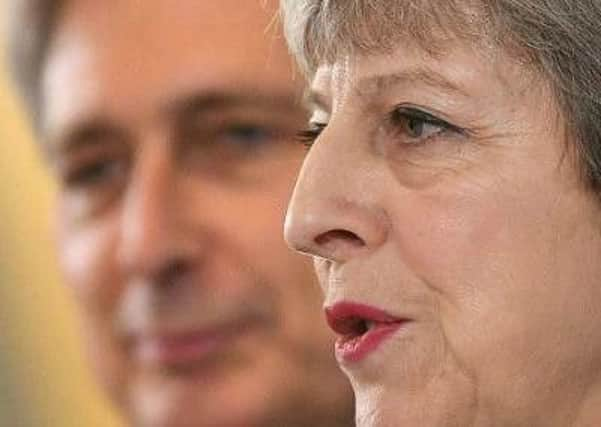Theresa May re-affirms commitment to investing in Yorkshire transport links


Responding to questions about historic under-investment in northern transport, Theresa May assured Yorkshire MPs that she did not see infrastructure spending as “a choice between North and South”.
Her comments build on similar assurances by Chancellor Philip Hammond and Transport Secretary Chris Grayling, the latter of whom claimed it was his priority to make sure the region gets the road and rail links “[it] needs to thrive”.
Advertisement
Hide AdAdvertisement
Hide AdHowever, campaigners are calling on the Government to demonstrate this commitment by matching its words with extra funding.
Pressure has been mounting on ministers to inject more money into northern transport infrastructure since the announcement earlier this year that rail electrification schemes in the region had been scrapped.
The situation was compounded when just days later the Government expressed renewed support for London’s £30bn Crossrail 2 project.
This met with an angry backlash from MPs and local leaders, who accused the Government of abandoning its Northern Powerhouse agenda.
Advertisement
Hide AdAdvertisement
Hide AdIt also sparked fresh calls for ministers to devolve more control over transport spending to local authorities so the region has the resources “to shape its own transport destiny”.
Raising the issue in the Commons at this week’s PMQs, the Conservative MP for Shipley, Philip Davies spoke of his constituents’ concerns that “Yorkshire has not had its fair share of the transport infrastructure cake... especially compared with London and the South-East”.
He called on the Prime Minister to “promise to significantly increase the proportion of transport infrastructure that is spent in the North... and Yorkshire in particular” over the course of this Parliament.
Replying, Mrs May highlighted the £13bn already set aside for transport projects in the region – “the largest [amount] in Government history”.
Advertisement
Hide AdAdvertisement
Hide AdShe went on to stress that the Government remains “committed to ensuring that the whole country gets the transport infrastructure it needs”, adding: “I reassure him that is not about making a choice between North and South.”
Key transport projects in the Yorkshire region include the second leg of the multi-billion HS2 scheme – due for completion in 2033 – and plans for a high speed rail link between Leeds and Manchester.
The think tank IPPR North has been running a campaign to get ministers to commit to prioritising these schemes, and to pledge £59bn in “catch-up cash” to address the funding gap between the North and the capital.
Responding to the Prime MInister’s comments, IPPR researcher Luke Raikes urged the Government to put its money where its mouth is. He said: “While we welcome the government paying attention to this issue, [it] must announce new money in the Autumn Budget for transport... We need to hear a real commitment to the fresh billions to get northern infrastructure to where it needs to be for the country to prosper.”
Advertisement
Hide AdAdvertisement
Hide AdMr Davies told this paper: “I think the Prime Minister made some of the right noises but what is important is what is done rather than what is said.“I will certainly do all I can to keep their feet to the fire on this crucial issue.”
Labour leader Jeremy Corbyn used PMQs to launch an attack on the Government’s plans for a partial lifting of the public sector pay cap.
Commenting on the decision to allow a 1.7 percent increase for prison officers and a 2 percent rise for police staff, Mr Corbyn argued this still amounts to a “real terms cut” in pay, which is “unacceptable”.
He also called for guarantees that the rise, which is to be funded from existing departmental budgets, will not result in job losses in the sector.
The Prime Minister responded by claiming that police officers have seen a 32 percent real-terms increase in pay since 2010.